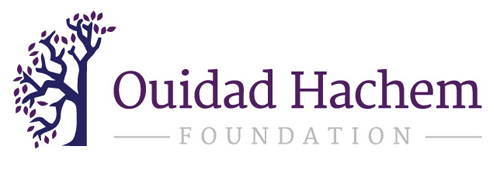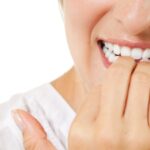News & Events
Dealing with Onychophagia: How to Put an End to Biting your Nails
Onychophagia: the causes
According to Stephane Rusinek one of the reasons that make us nibble our nails is a practical one. Long ago, nails allowed humans to defend themselves and despite losing their function, they still grow. They are no longer used in combats or activities, so we need to shorten them somehow, by biting them for instance. Moreover, we get used to put our fingers in our mouths since our infancy, so nail biting is connected to innate activities or activities acquired very early on, says the specialist.
Aside from that, Stephane Rusinek believes that even if the reasons are hard to determine, they are usually connected to situation of stress and anxiety. “The proof of which is that the rhythm of the breathing changes when one nibbles their nails: It is maintained, it is slowed, the person concentrates or breathes even deeper.” This simple stress-relieving activity ends up becoming a set habit that’s hard to alter.
How to stop biting your nails
From the psychological point of view, people who suffer from extreme Onychophagia should learn to deal with anxiety, which is usually at the heart of the disorder. In this respect, relaxing and practicing breathing exercises are the basis of the sessions of therapy. The patients also learns the causes of their anxiety and the dysfunctional thoughts that accompany it and how to manage them. The patients should also be aware of their behaviors and detect the circumstances that accompany the appearance of the mania. Some parents think they’re doing well by telling their children off and even punishing them when they see them eating their nails.
According to Stephane Rusinek, this stance is counterproductive. “It’s better to put your children in a rewarding atmosphere, by congratulating them when they restrain themselves from nibbling their nails, and giving them attention then.”
During therapy sessions, aesthetic helping hands are encouraged such as wearing fake nails or applying bitter nail polish. These solutions have their limits as some people nibble even their fake nails and tear them off to reach their real ones. The same goes for bitter nail polish as some people end up liking its taste.
Tricks to stop nibbling your nails
· Applying bitter nail polish
· Wearing fake nails
· Taking care of your nails
· Chewing gum
· Exercising
Is replacing onychophagia with another (bad) habit, a good idea?
If one nibbles their nails for several years, is it not probable that they might pick up another habit? In the absolute, the answer is no, assured the specialist and a well conducted cognitive behavioral therapy ends with healing, not with even more problems.

